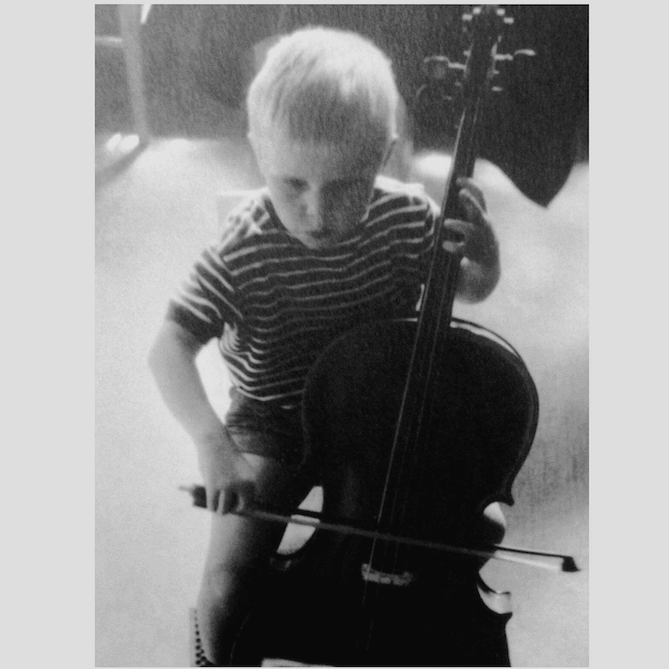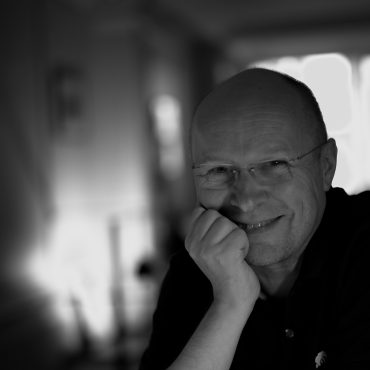
Understanding Teachers (Part 1)
Anssi Karttunen
This article in two parts is a self-examination in trying to understand what all my different teachers have finally meant for me. I needed years of distance and experience to even start to be able to analyze these complex relationships. It is normal to admire the most recent teacher and feel that the earlier ones were less important and this clouds the fact that we carry them all equally throughout our lives. I originally wrote this text for myself, to get an idea how my feelings had changed over the years and it proved very revealing for myself. I have accepted now to share it so that others might be inspired to make the same experiment.
The summer music camps in the 1970s in Finland were goldmines for us young musicians. The amount of great musicians of amazing variety from both East and West (as we used to say in those days) would come to Finland every summer. Finland was one of the first “western” countries where the Soviet block artists would be allowed to come to perform and teach. Those famous Russian musicians were the obvious ones to dream studying with. As a teenager I thought I had a very good idea of what I wanted to be and where I wanted to study (I even studied Russian for five years for this reason). From what I’ve understood later I may have been lucky not to try to make my studies within the Russian school, I might easily have been crushed by the authoritarian teaching methods. All of these daydreams were soon swept aside by the extraordinary and unexpected musicians I came in contact with at the summer music camps in Finland.
William Pleeth – the eye-opener
William Pleeth was the first and perhaps the most profoundly lasting influence among these musicians. Hearing him at the Kuhmo Chamber Music Festival play the Schumann Phantasiestücke, the Debussy Sonata, Beethoven D major sonata (with Ralf Gothoni), or the Schubert and Mozart String Quintets (with Eli Goren, his close violinist friend from the days of the Allegri Quartet) showed a completely new way of relating to music. It became soon an obsession for me to get to study with him. After my very short appearance at the Turku Cello Competition in 1978 (Mr Pleeth was a Jury member) – as the first competitor to play and first to be eliminated – I wrote to him to ask for lessons. Armed with his letter of acceptance I left to study with him privately in London one day before my 18th birthday.
Studying with Mr Pleeth was completely different from what I had experienced before. It was all about music, about eliminating technical problems by understanding the needs of the music. Basically becoming a musician instead of a cellist. He would use endless metaphors and comparisons with other arts to focus on the substance rather than a superficially technical or otherwise prejudiced view.
One of the recurring themes that kept coming back in the lessons with Mr Pleeth was the concept of “them”. He would say: they play it like that, or they think that way etc. They always remained nameless, he would never say a bad word about any colleague, but we had this secret complicity of belonging to the same us.
I never worked as hard as during those years, but I don’t think I played a single study or scale for him. During the first year I went through about 16 concertos and many sonatas at the lessons. I became quite an obsessive worker while convinced to be terribly lazy. I devised a three day rotating system for practicing: alternating 1 hour practice and 20 minute break until I had practiced 7 hours. Every third day I would allow myself to practice only 5 hours in order to visit museums. In the evenings I went to concerts at least three times a week and on weekends to midnight shows at the Cinema. The breaks were spent reading as much literature as I could get in, with the constant danger of preferring the reading to practicing. None of this was asked for by Mr Pleeth, but the way he used literature and arts as reference in his teaching made it obvious that it was an absolutely necessary part of becoming a musician. This amount of practicing was needed simply to dare to show up at the next lesson with whatever new piece, he rarely listened to the same piece twice.
William Pleeth was the first musician I had met until then who seemed open to every direction. It seemed natural to him that one should learn as much as possible from the early instrument research. He always spoke of the importance of looking for forgotten works and especially towards respecting living composers. If he could be so open-minded I had no choice but to try to be even more so.
A lifetime spent playing chamber music reflected in his deep respect for other musicians and always reacting to them. Questioning one’s own preconceived ideas and asking what if? became one of the ideals to live by. Learning from the composer, the other musicians, the bow, the cello, rather than believing what one had learned previously from someone is something that I attribute to my time with William Pleeth.
Tibor de Machula – the generous
Tibor de Machula was another of the great musicians I met at those Finnish music camps. I met him and his family at the Lapua and Suolahti camps. There were several lessons in generosity that I received from Tibor de Machula which I fully understood only much later. One year I arrived to Suolahti course a day after he had performed the Kodaly Solo Sonata. To my great surprise he asked me at the first lesson if I wouldn’t like to learn it. I stuttered that I thought the piece was far beyond my technical or musical capacities, but he seemed to not agree and said it was a pity I hadn’t heard it the previous night. His daughter Barbara, who must have been about 13 at the time, was in the room and asked him why wouldn’t he play it for me right then, which is exactly what he proceeded to do. Luckily for me, because that was the only time I ever got to hear him play that piece. Even if the details have faded in my memory I will always remember the simplicity and naturalness with which he played every note. While I did study the piece with him I never got over the first impression of hearing him play it and have never dared to play the piece in concert. I had heard privately the one performance I needed to hear of the piece and never felt I could add anything to it. I doubt I have even listened to the piece after studying it with him.
I admired de Machula’s playing very, very much, but at the same time I was (already) very opiniated and afraid of him trying to make me play like him. For example, I was afraid of copying his well known fast vibrato. I also thought I already knew exactly how to play Bach and didn’t really want influence from him in that either. He was of course much more intelligent than I, he hardly ever mentioned vibrato and when I played Bach for him, he listened to my version politely, then played the same Suite to me his way and never discussed the differences at all. It is obvious that he understood exactly who he was dealing with and that this was the best way of leaving his legacy deep in me.
The final lesson in generosity was a more difficult one. I was playing the Prokofiev Sinfonia Concertante for him and got stuck with a famous passage of tenths which I obviously hadn’t learned very well. Rather than scolding me about my sloppiness he took his cello and started practising it with me. He made me practice every interval with him until he (naturally) had them
perfect and I just kept struggling. With infinite patience he kept practicing with me for for what seemed like hours until I was completely broken, furious and ready to smash my cello on his head. While I thought he was trying to humiliate me, he was in fact just showing how to be patient and get to the bottom of things, something I hadn’t understood before. As I was packing my cello and swearing in my head never to come back, the next student arrived and de Machula asked me back saying that he would like me to play Bach’s c-minor Sarabande to the student, that he thought I played it so well that the best way for the other cellist to understand the piece was to hear me. At this point I was completely bewildered as to what had happened in those last two hours.
Recently, when I was playing with the Concertgebouw orchestra and spoke to several players who had known him in his days as Solo Cellist, I heard that he was considered the moral authority of the orchestra. Several of his colleagues independently mentioned that they could never forget the humanity of his solo in the Mahler 9th Symphony. The word humanity is something that describes well his way of making music. I find it so impressive that after more than 30 years his colleagues were still moved by the roughly15 notes of the solo in Mahler.
I have recently been re-studying the Dvorak Cello Concerto, with the goal to clean it from layers of traditions that have accumulated to finally almost deform the piece. After months of work, as I had started to be sure about my convictions I decided to listen to de Machula’s recording of the piece, in way to check how far I would have moved from the times I studied with him. What I heard was almost exactly where my own research had taken me. He must have somehow planted a seed 35 years ago in a way that allowed me to arrive at similar conclusions when I finally was ready for it.
I was unfortunately too young to have all the conversations I would have wanted to have with him, there were many complex issues to talk about. During the last year of his life I had a tour of Holland playing the Schostacovich Concerto No 1, he was never able to make it to the concerts on account of his asthma. In my self-centeredness I took this as not wanting to hear me and very nearly broke off our relations. Luckily a few weeks before his sudden death I saw reason, visited him and was able to re-establish the bond between us. Finally, I thought, the time was right to talk to him about great conductors, his time in Finland in his youth or life in Berlin during the war and many other subjects. No, there would be no time for that, a month later he was taken away by his asthma.
Subjects: Artistic Vision, Artists
Tags: great cello teachers, teachers, Teaching
